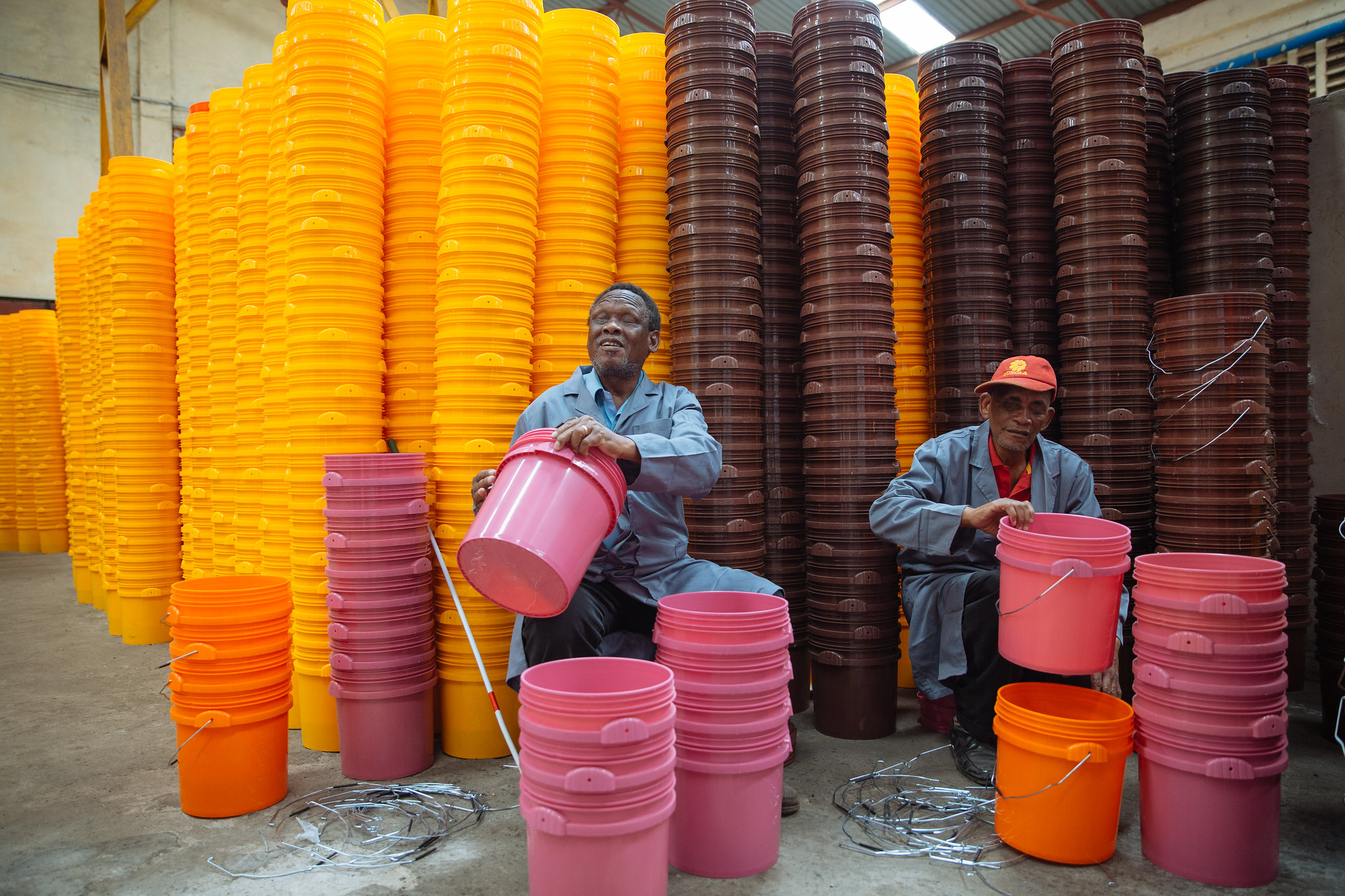Supervisor Discretion or Data-Driven Decision Making? Evidence from a Tanzanian Factory

Factory Workers Stack Colorful Buckets in a Warehouse in Dodoma, Tanzania. Photo Credit: Mitchell Maher / International Food Policy Institute via Flickr
Study Context
Managers in firms often have discretion in which applicants they hire or which workers are selected for a promotion. This degree of informality is especially prevalent in developing countries. What is unknown is whether this discretion is efficient or inefficient. On one hand, managers may have valuable private knowledge about worker quality that is not captured in publicly observable data. On the other hand, supervisors may have personal preferences and biases that are not aligned with the firm’s goals.
In Tanzania, researchers are partnering with a large manufacturing firm to study how introducing more data-driven processes to both firm decision making as well as worker decision making affects productivity, labor supply, and worker morale.
Study Design
Support from the Development Economics Challenge funds enabled the research team to conduct interviews and surveys with 120 supervisors at the firm. The interviews collected information from supervisors about their beliefs and how they relate to worker performance and their selection of workers for task upgrades. Combined with rich administrative data from the factory on worker attendance and productivity, the interview and administrative data informed the design of a full-scale randomized evaluation amongst workers.
The research team will randomize whether workers receive accurate information about their performance relative to other workers,
stratifying randomization by whether their priors (collected in a baseline survey) are underconfident, accurate, or overconfident relative to the truth. Specifically, workers assigned to Control will receive an SMS with generic information about an upcoming promotion application session. Workers assigned to Treatment will receive the same information plus additional information about how their own performance record compares to other workers overall. Researchers will then ask all workers to confirm that they have read the SMS message (to measure compliance), their beliefs about how their performance record compares to other workers (to measure belief updating), and whether they plan to apply for promotion. This experimental variation will allow researchers to test how workers update their beliefs when given accurate information about their own performance and how this affects their propensity to apply for promotion.
Results and Policy Lessons
Results forthcoming.

